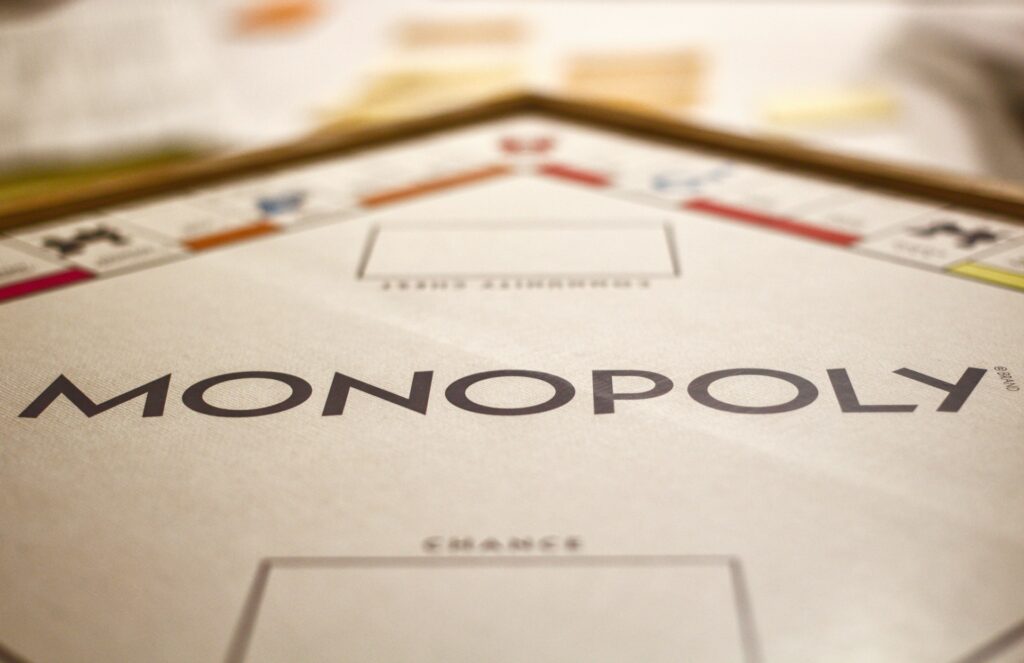Ever played a game of Monopoly that ended with flipped boards and accusations of treachery? While Monopoly can test the strongest of friendships, it can also teach us some valuable lessons about managing real-world finances. Here’s how this classic board game can provide insights into effective money management and financial strategy.
1. Diversify Your Investments
In Monopoly, putting all your money into one property (like Park Place) without diversifying across others might not always be the best strategy. The game teaches us the importance of diversifying investments to mitigate risks and increase chances of income. Similarly, in real life, spreading your investments across different assets (stocks, bonds, real estate, etc.) can protect your financial health against market fluctuations.
2. Cash Reserves Are Crucial
Anyone who’s been decimated by hotel costs on Boardwalk understands the importance of keeping a cash reserve. Monopoly shows that while it’s tempting to invest every dollar, holding back some cash for unexpected expenses is vital. The real-world application is straightforward: maintaining an emergency fund can help you avoid financial disaster when unexpected costs arise.
3. Negotiate Wisely
Monopoly involves a lot of deal-making, from trading properties to negotiating rent freezes or alliances. These interactions mimic real-world financial negotiations, such as discussing a raise, setting freelance rates, or agreeing on a mortgage. The game teaches that polite yet firm negotiation tactics can significantly influence financial outcomes.

4. Strategic Debt Can Be Beneficial
Mortgaging your properties in Monopoly can provide the cash needed to develop other assets, like building houses or hotels. This reflects a real-life financial principle: taking on debt isn’t always bad if it’s strategic. Loans for education, a home, or to expand a business can be worthwhile if they lead to higher overall wealth.
5. Plan for the Long Term
Monopoly isn’t won with short-term gains; winning strategies involve planning for the long haul. This means investing in houses and hotels wisely, and managing resources to stay solvent. Similarly, real-life financial planning—whether for retirement, buying a home, or investing in education—requires long-term planning and patience.
6. Adaptability Is Key
The random elements of Monopoly—from chance cards to dice rolls—teach players to adapt their strategies on the fly. This mirrors the unpredictable nature of real-world finances, where external factors such as the economy, job market, or personal life events can disrupt even the best-laid financial plans. Being adaptable and ready to adjust your financial plans is crucial.
7. Know When to Quit
Finally, Monopoly can go on for hours, often without a clear end in sight. Sometimes, the best move is to know when to call it quits and start a new game, rather than continuing to pour resources into a losing battle. In finance, this could mean recognizing when it’s time to cut losses on an investment or pivot in your career path instead of stubbornly sticking to the original plan.
Conclusion
While Monopoly might just seem like a fun family game, it offers more than just entertainment. The strategies involved in playing can be applied to real-life financial management, teaching lessons on investment diversification, cash reserves, negotiation, strategic debt, long-term planning, adaptability, and knowing when to change course. Next time you roll the dice, think about the financial principles you are practicing that could be applied outside the game board.





 GOOGL
GOOGL  META
META
Leave a Comment